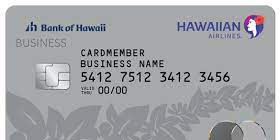
Low-risk investments are a good choice for cautious investors who wish to shield their capital from potential losses while reaping the benefits of modest growth, regardless of whether they are new to the markets or seasoned pros. Short-term investments can have high risks or poor returns depending on where you put your funds.
Yet that's just as crucial if you want to profit from your cash reserves and other liquid assets. Your savings and cash investments will almost surely decrease purchasing power over time due to inflation. Most short-term investment options, like house buying, have much lower returns than long-term alternatives.
While investing in low-risk assets will help you keep your money safe, you should know that doing so will also reduce your potential earnings. Advantages of low-risk investing include diversity and the ability to save up for short-term goals like a down payment on a house.

Best Short-Term Investments For Generating Income
Fixed Annuities
Although fixed annuities are most commonly used for retirement planning, they can also be beneficial for short- to medium-term financial objectives. A fixed annuity, typically offered by insurance and investment firms, provides investors with a guaranteed return rate for a specified period, regardless of fluctuations in the broader financial markets.
An annuity has two parts: the accumulating period and the payout period. With the first, you make a series of tax-deferred contributions to your annuity, and its value increases over time. The payout phase can be a one-time, lump-sum payment or a series of installments spread over time.
While inflation can eat away at the value of a fixed annuity over time, cost-of-living-adjustment (COLA) riders are available from many providers to ensure that your annuity value remains stable over time.
Money Market Accounts
A money market account can bridge the gap between the convenience of a savings account and the need for access to your money fast. Money market accounts are similar to checking and savings accounts in that account holders earn interest on their holdings at a greater rate.
Yet, money market accounts facilitate withdrawals by allowing customers to write checks and link debit cards to their accounts. The safety of money markets is comparable to that of a bank savings or checking account. The monthly withdrawals you can make may be capped at six, similar to savings accounts.
After that, there may be a charge for each withdrawal you make. The amount you earn from a money market account may vary because many accounts provide higher interest rates for higher balance tiers. Short-term investments may be preferable if you don't have enough money to earn the best returns.

Corporate Bonds
This investment on our list of the best short-term investments for monthly income is a corporate bond, a financial product issued to investors. Large enterprises issue them to the general public for financial support. A stock is a fractional share in a corporation that an investor can purchase.
The stock may increase or decrease in value depending on the company's performance, and the investor will get dividends. A bond issued by a corporation is more analogous to a loan. At the end of the term, the corporation will return the investor's initial investment plus interest.
Because of the higher probability of receiving principal and interest, corporate bonds are viewed as a more secure investment option than stocks. Stocks are riskier than other investments since their value may never rise significantly, and there is no guarantee of when to sell them.
The bondholder is at risk only in the event of the company's bankruptcy. Nonetheless, the company's assets are usually pledged as collateral, increasing the likelihood that your losses will be covered. Corporate bonds with three years or fewer maturities are an option for investors seeking a low-risk, high-return investment.
Certificates Of Deposit
Most certificates of deposit (CDs) are FDIC-insured, making them just as secure as savings and money market accounts. However, certificates of deposit (CDs) have more stringent limits on early withdrawals than the other two. This investment is one of the good short-term investments.
When you open a CD account, you commit to leaving your money there for a set period, which could be months or even years. The interest rate is proportional to the length of time before maturity. The bank will return your money, plus interest, after the term.
If you need to put money down for a short period, say six months to a year, you can choose a maturity that suits your necessities, and rest assured that you will receive your principal back at the end of the term. Due to unforeseen circumstances, the bank will impose severe fees if you need to withdraw funds from your account early. Don't store your emergency savings in a certificate of deposit.
Cash Management Accounts
An alternative to the services offered by conventional banks is a cash management account. Brokerage firms are the most common issuers. Like a regular checking account, a cash management account typically includes a debit card, a checkbook, and bill pay features. They also typically have better interest rates than a regular checking account.
Only investors with an existing account with a brokerage business can benefit from cash management accounts. If investing is a substantial portion of your income, having all your financial and investment accounts in the same place is convenient.
There will be less paperwork and fewer statements to obtain at tax time. In addition, most cash management accounts include services that can help you maximize your investment profits and control the cash flow into and out of your investments. Thus it's among the safe short-term investments for generating income.
Conclusion:
Investing for a return in one to five years is considered short-term. Nevertheless, the short term might mean many things depending on the context. The greatest short-term investments help you diversify your portfolio and provide a regular income stream in the short run. You should know what you hope to achieve and how much risk you will take before making any short-term investments.



